Investing in real estate properties requires careful consideration of various aspects to ensure efficiency and profitability.
In this evolving landscape, one of the significant advancements is the integration of smart energy meters.
These devices offer an innovative way to manage and monitor energy consumption.
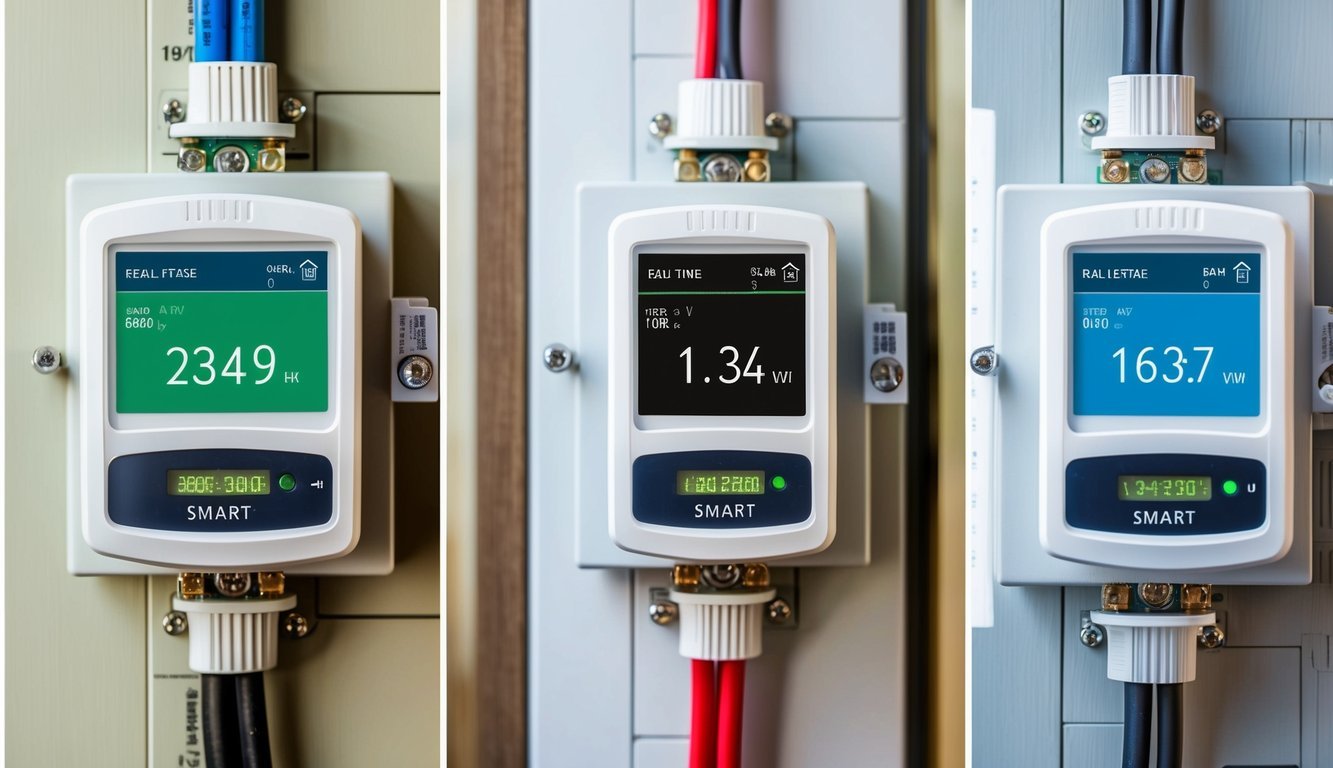
Understanding how smart energy meters can benefit your real estate investments is crucial. These tools provide real-time insights into energy usage, enabling you to optimize costs and make informed decisions. Embracing such technology can transform the management of your properties by enhancing control over energy expenses and contributing to a more sustainable approach.
1) Siemens Smart Meter
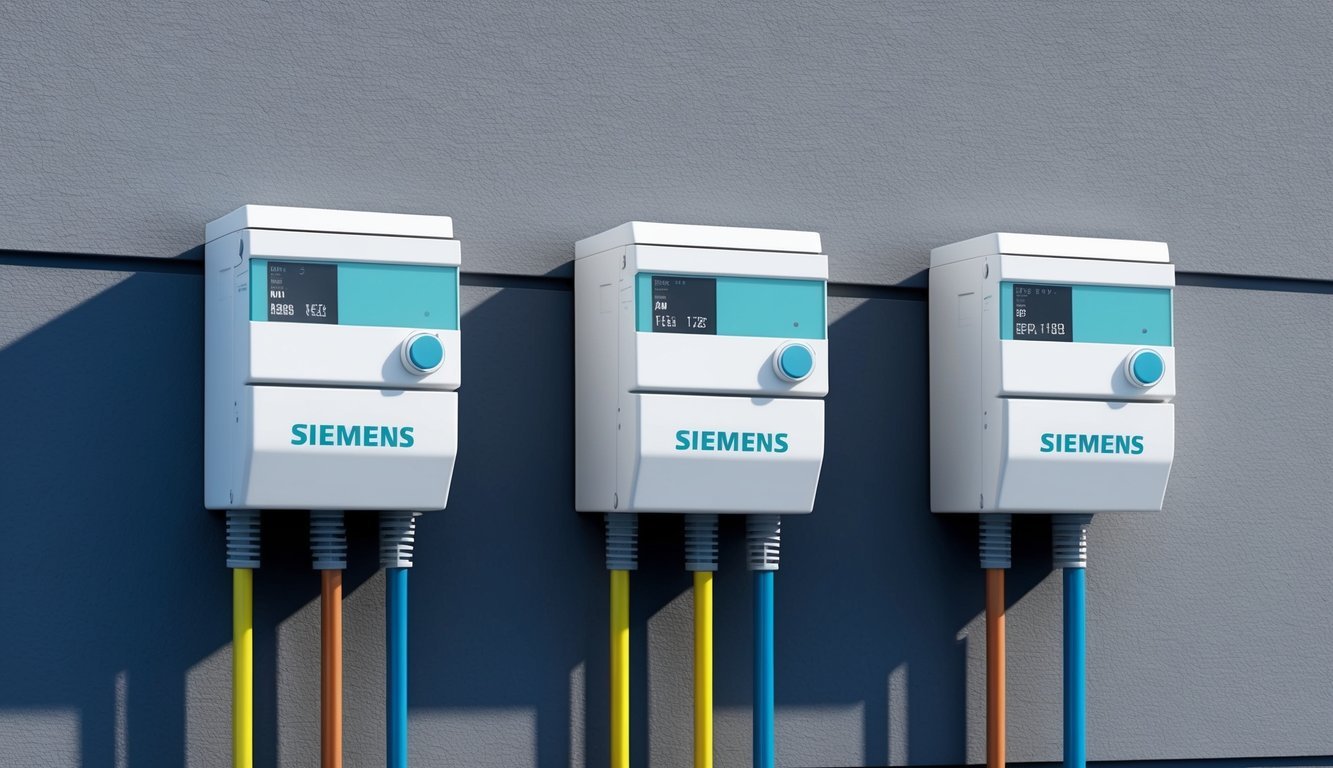
When you choose a Siemens Smart Meter for your real estate property, you gain precision and control over energy use.
These meters offer accurate data that helps allocate energy costs effectively, which is crucial for managing expenses in both residential and commercial buildings.
The Siemens Smart Meter easily integrates into existing building automation systems.
With standardized M-bus and pulse outputs, it ensures efficient energy management.
This streamlined integration minimizes installation hassles, making it a practical choice for any property owner looking to update their energy management system.
Additionally, Siemens provides advanced analytics capabilities.
Utilizing smart meter data, you can identify specific market segments and optimize energy use across different areas of your property.
This data-driven approach supports energy-saving initiatives and can reduce overall consumption.
Moreover, Siemens introduces solutions like the Inhab Energy Monitor developed in partnership with Emporia.
This tool empowers property owners with precise insights into energy consumption, aiding in smarter decision-making.
Designed for reliability, Siemens Smart Meters offer long-term durability.
They are built to maintain accurate readings and withstand environmental challenges, ensuring consistent performance over time.
This focus on quality makes them a dependable choice for managing energy usage in various building types.
2) Landis+Gyr E450
The Landis+Gyr E450 smart meter is a versatile tool for real estate properties aiming to optimize energy management.
This device serves as a comprehensive electricity metering solution, offering high flexibility and advanced features.
It’s designed to effectively communicate energy usage through remote two-way communication.
This meter is a vital part of the Landis+Gyr’s end-to-end AMI solution.
It supports multi-energy data collection, making it ideal for properties dealing with diverse energy sources.
By integrating into smart grid systems, it assists in achieving efficient energy utilization.
Among its capabilities, the E450 also acts as a powerful interface for end-user interaction, supporting properties seeking to enhance their energy efficiency efforts.
Its compatibility with different communication technologies, including PLC and GPRS, makes it adaptable to various infrastructure setups.
Properties equipped with the E450 benefit from real-time energy monitoring, contributing to better energy usage decision-making.
Built on open standards, the meter ensures interoperability, essential for seamless integration into existing systems.
To delve deeper into the features of the E450, visit the Landis+Gyr E450 page.
3) Itron OpenWay Riva

The Itron OpenWay Riva meter is a significant innovation in smart energy management, especially for real estate properties.
Its robust capabilities exemplify the next generation of grid technologies.
With this meter, you gain the ability to manage energy consumption efficiently through both smart metering functionality and advanced communication features.
OpenWay Riva leverages edge intelligence and adaptive technology, providing real-time analytics.
This means you can monitor and manage energy usage promptly, avoiding potential overload conditions on transformers.
The distributed intelligence platform is a key advantage for properties requiring dynamic energy management.
The meter supports bi-directional energy registers, offering comprehensive tracking of energy flow, which is essential for properties implementing sustainable energy solutions.
Additionally, OpenWay Riva meters communicate with one another, enabling local and network-wide optimization of energy distribution.
This smart meter stands out for its ability to operate seamlessly within a variety of environments.
For buildings relying on interconnected systems, the OpenWay Riva ensures integrated operation across the network, enhancing efficiency.
Its implementation in your properties can lead to better energy management, reduced operational costs, and improved sustainability.
You’ll benefit from a smart energy solution that adapts to your specific needs, maximizing the efficiency of your real estate management.
Importance of Smart Energy Meters for Real Estate
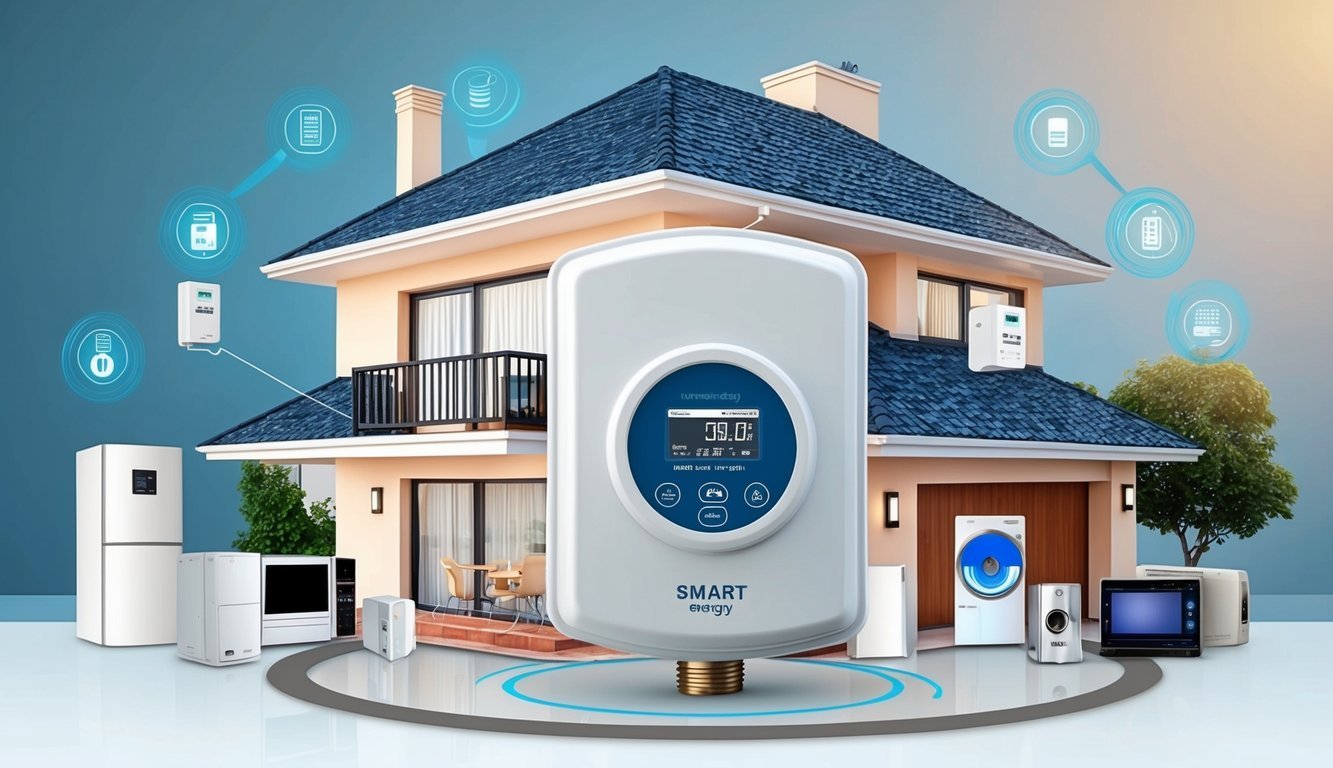
Smart energy meters bring numerous advantages to real estate properties.
They offer improved accuracy in tracking energy consumption and provide insights that translate into financial, environmental, and regulatory benefits.
Energy Efficiency
Using smart energy meters, you can accurately monitor and manage energy consumption in real-time.
This technology allows for precise tracking of usage patterns, helping you identify peak usage times and energy wastage.
By optimizing energy use, these meters promote sustainable practices and enhance energy efficiency throughout your property.
Smart meters also enable integration with renewable energy sources, further increasing operational efficiency and reducing reliance on non-renewable resources.
Employing such a system not only contributes to a greener environment but also elevates the property’s appeal to environmentally conscious buyers or tenants.
Cost Savings
The cost-saving potential of smart energy meters is significant.
By providing detailed data on energy consumption, you can easily spot inefficiencies and areas where energy is wasted.
This information is crucial for implementing targeted energy-saving measures that reduce overall energy expenses.
Additionally, smart meters eliminate the need for manual meter readings, further cutting down operational costs.
Direct communication with the utility company ensures accurate billing, preventing costly estimation errors and overcharges.
These financial benefits make real estate properties fitted with smart meters more attractive to budget-conscious investors and residents.
Regulatory Compliance
Incorporating smart energy meters helps ensure compliance with evolving energy regulations and standards, which are increasingly prioritizing sustainability.
These devices automatically track necessary data points and help you adhere to energy consumption limits set by local authorities.
Staying compliant not only avoids potential fines and penalties but also aligns your property with governmental green initiatives.
Moreover, properties that embrace these technological advancements often qualify for incentives or grants, which can further offset the costs of implementing such systems.
Making informed choices that meet regulatory expectations positions your property as a leader in sustainable real estate practices.
Features of Modern Smart Energy Meters
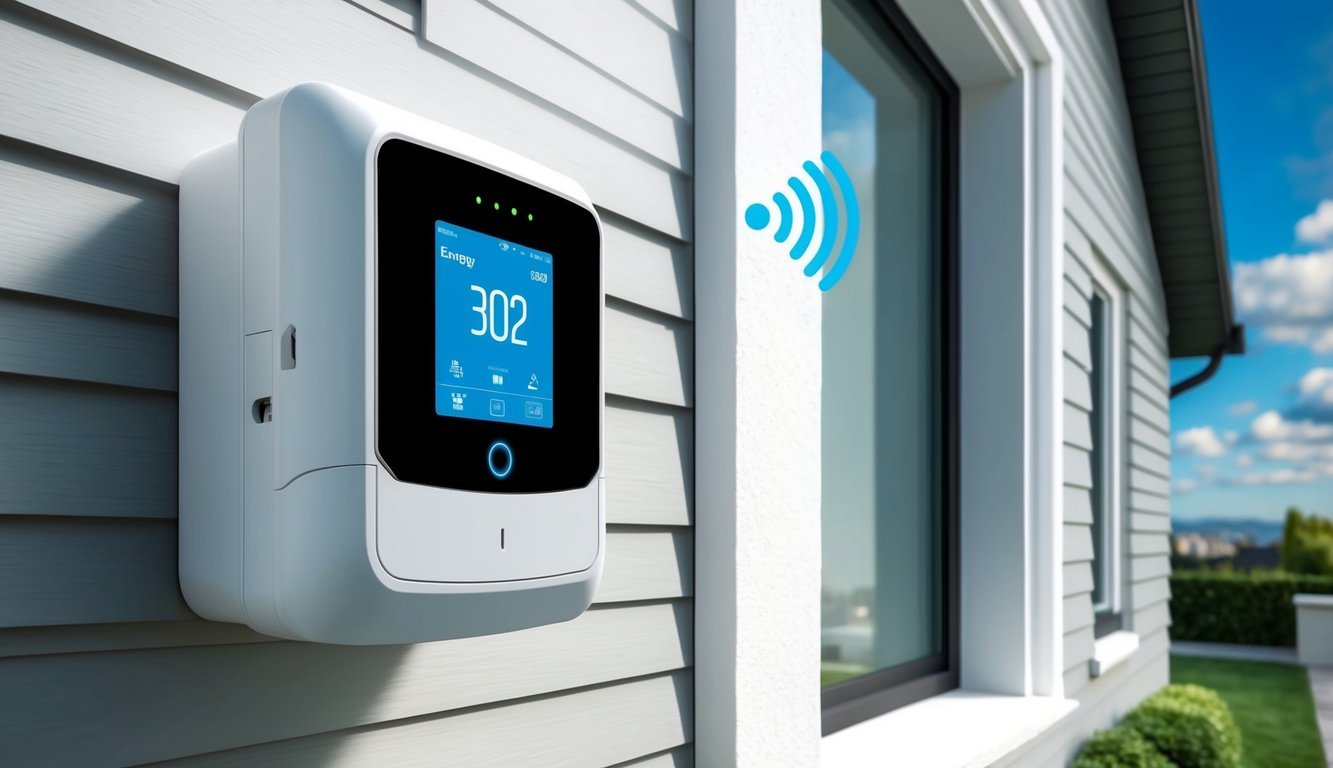
Modern smart energy meters are essential for real estate properties, offering significant advantages.
They provide real-time data, detailed analytics, and seamless integration with smart home systems, helping you optimize energy efficiency and reduce costs.
Real-Time Monitoring
Real-time monitoring is a standout feature of smart meters.
These devices continuously track your household’s energy consumption, providing updates in minutes.
This constant flow of information allows you to adjust usage patterns immediately, which can lead to cost savings.
Daily and hourly usage insights indicate peak consumption times.
This can help you implement strategies to lower usage during high-demand periods.
Moreover, having access to this data means you avoid surprises on your energy bills, as consumption can be checked frequently, keeping you informed of any unusual spikes.
Data Analytics and Reporting
Smart energy meters offer sophisticated data analytics and reporting.
They compile data to provide comprehensive insights into energy usage trends and patterns.
Using detailed reports, you can compare past and present consumption data.
This feature offers an opportunity for historical analysis, helping identify long-term trends and potential areas for improvement.
Additionally, some meters offer predictive analytics, giving you the ability to forecast future energy needs based on past data.
Integration with Smart Home Systems
Modern smart energy meters can easily integrate with various smart home systems.
This connectivity allows you to enhance energy management through automated adjustments based on real-time data.
With integrated systems, you can control devices like thermostats or lighting directly from your smartphone or other connected devices.
This not only simplifies managing multiple appliances but also optimizes energy consumption by ensuring devices run only when needed.
Furthermore, integration supports the creation of a cohesive smart home environment, where energy efficiency and convenience are maximized through automated, intelligent responses to energy data.
Challenges and Considerations
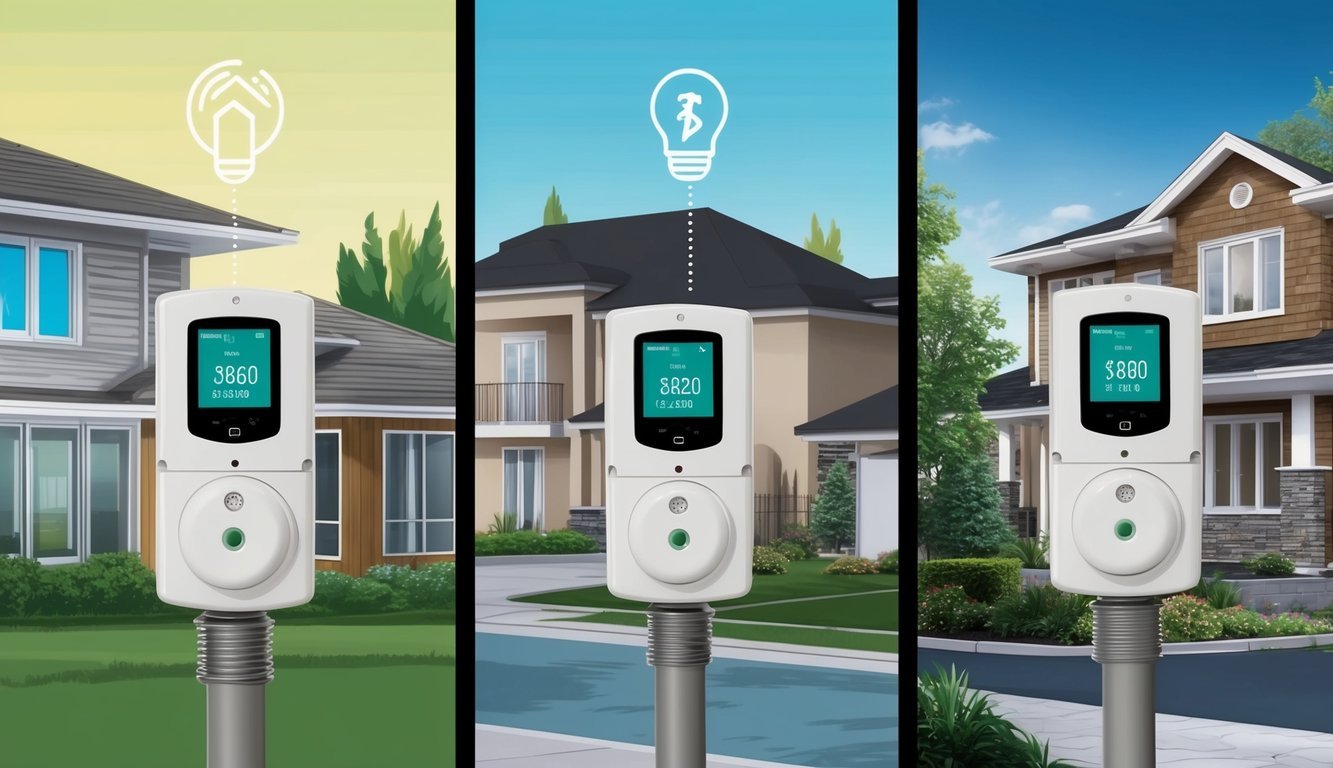
Installing smart energy meters in real estate properties can be beneficial but also presents notable challenges.
Understanding the cost implications, addressing privacy concerns, and managing ongoing maintenance are critical for seamless integration.
Initial Installation Costs
The initial setup of smart energy meters can be expensive.
Costs involve purchasing the devices and integrating them with existing systems.
For larger properties, multiple meters might be needed, which further increases expenses.
Financial incentives or rebates might be available to help offset some of these expenses.
It’s crucial to assess whether the long-term savings on energy bills justify the upfront investment.
Additionally, when evaluating costs, consider the potential impact on property value and appeal.
Data Privacy Concerns
Data privacy is a significant issue with smart meters.
These devices collect detailed energy usage data, which can be sensitive.
Unauthorized access to this data poses privacy risks for residents.
Ensure that the chosen smart meter solution complies with data protection regulations.
Look for devices that offer robust encryption and secure data transmission features.
Implementing data access controls and educating residents on data privacy can further help mitigate these concerns.
The goal is to ensure security without compromising on the benefits of smart metering.
Maintenance and Upkeep
Ongoing maintenance is essential to keep smart meters functioning efficiently.
Regular software updates and hardware checks are needed to ensure accuracy and reliability.
Deterioration over time or potential technical malfunctions require prompt attention.
Consider setting up a maintenance schedule or contract with service providers to handle these needs.
This approach helps maintain optimal performance and extends the lifespan of the meters, ultimately ensuring continued energy savings and accurate data reporting.
Frequently Asked Questions
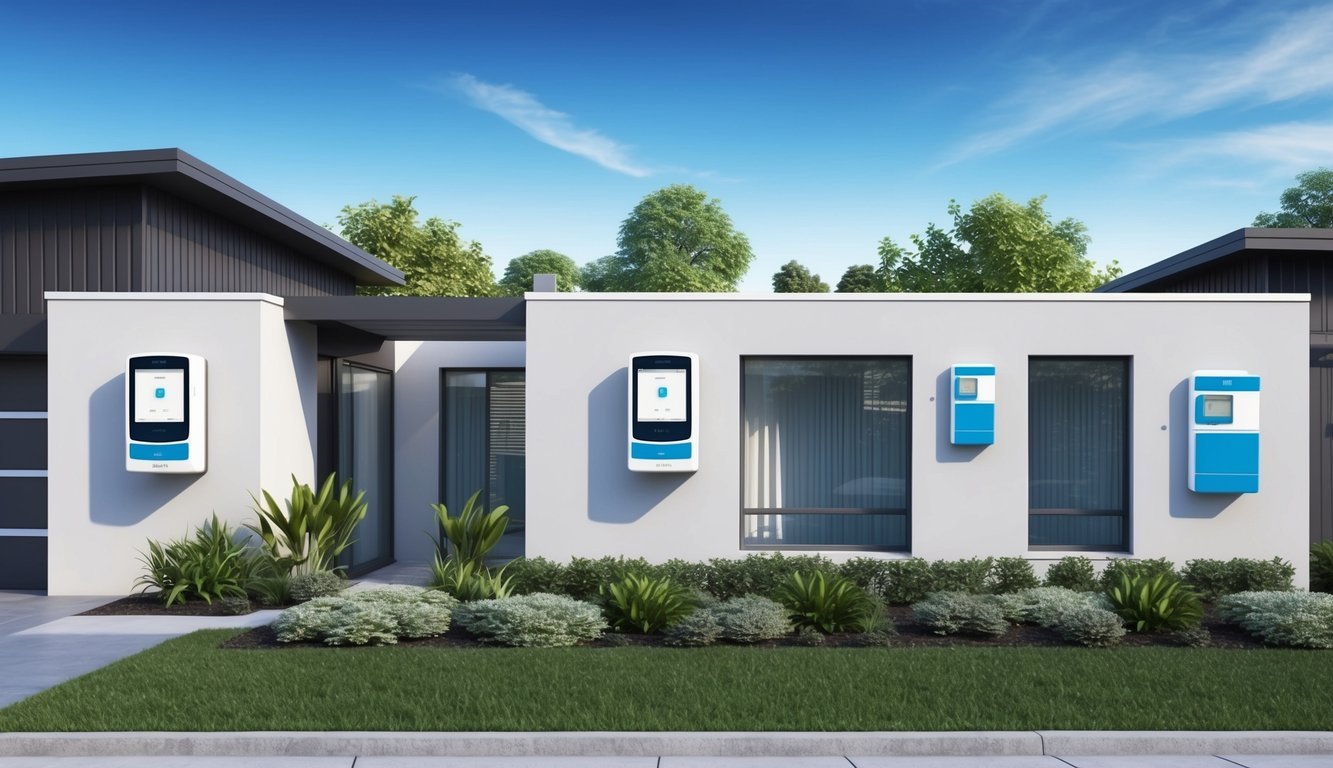
Smart energy meters offer numerous advantages for property management in real estate.
Understanding the costs and potential challenges associated with smart meters can help you make an informed decision on their installation and use.
What are the benefits of using smart energy meters in real estate properties?
Smart energy meters provide more accurate energy billing, as they transmit usage data directly to energy providers.
This can help in monitoring real-time energy consumption, allowing for more efficient energy management.
They can also assist in identifying opportunities to reduce energy waste.
How much does it cost to install smart energy meters in residential or commercial buildings?
The cost of installing smart meters can vary depending on the technology used, property size, and location.
While some energy suppliers may offer installation at no charge, others may have associated fees.
It is best to consult with local energy providers for specific pricing information.
What potential disadvantages should property owners consider when installing smart energy meters?
Some potential concerns include privacy issues, as smart meters transmit detailed consumption data.
There may also be costs associated with upgrading existing infrastructure to support smart meter technology.
Additionally, some users might experience technical difficulties or require assistance in understanding how to maximize their use.
What are the various smart meter technologies available for real estate properties?
The market offers different technologies such as Siemens Smart Meters, Landis+Gyr E450, and Itron OpenWay Riva.
Each varies in features, data handling capabilities, and compatibility with other systems.
It is important to evaluate your property’s energy needs to select the most suitable technology.
How can homeowners determine if their property is eligible for a smart meter installation?
Eligibility often depends on the region’s energy provider policies and the existing infrastructure of the property.
Generally, you will need to contact your energy provider to check compatibility and availability for your location.
They will also provide guidance on the installation process.
How can one identify if a smart meter is already installed in a property?
To determine if a smart meter is installed, check for a digital display panel on your current meter showing real-time energy usage.
Additionally, contacting your energy supplier with your account details can provide confirmation and more information about any existing smart meter setup.

